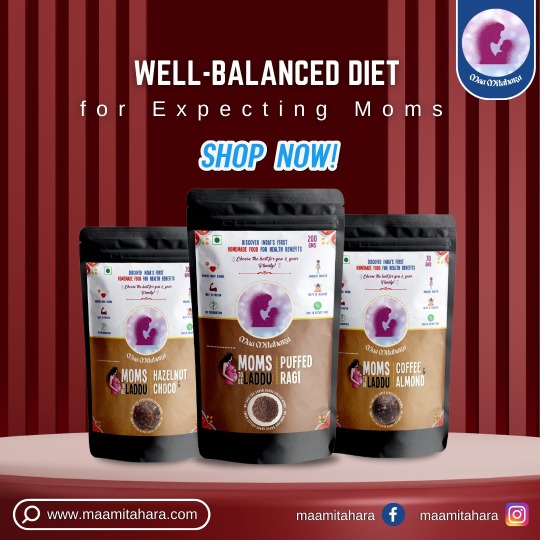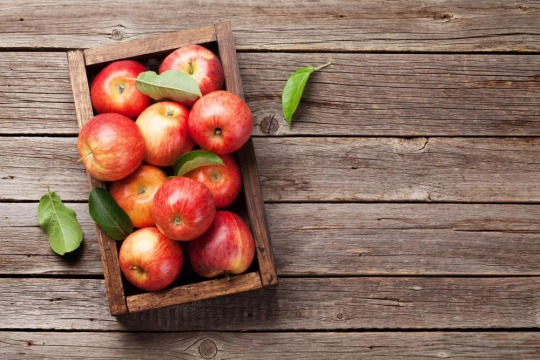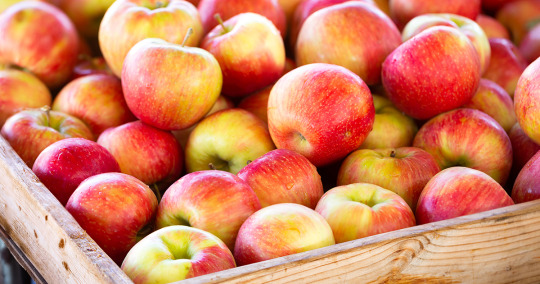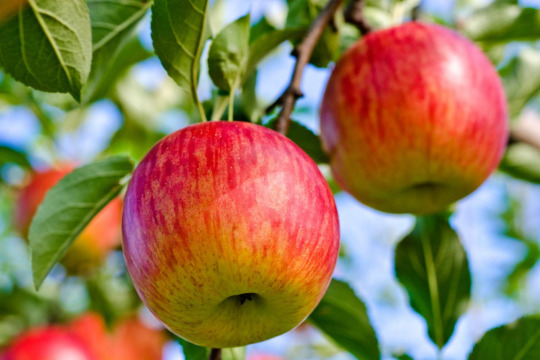#pregnancy diet
Link
#health#Healthcare#baby health#Health Care#mental health#digital health#digital health trends#health & fitness#pregnancy nutrition#nutrition#nutritious#nutrients#pregnancy diet#diet#fitness#wellness#health and wellness#wellness blog#health blog#pharmacy#Online Pharmacy#pharmaceutical#pharma news#online pharmacy india#medical#mental#medicine#menstruation#buy medicine online#medical care
5 notes
·
View notes
Text
#food#food diary#foodie#recipe#foodpics#pregnancy diet#pregnancy fantasy#pregnant#pregnancy#pregnancy and childbirth#health is wealth#health news#health and wellness#health updates#nutrition#nutirition
3 notes
·
View notes
Text

A balanced pregnancy diet plan is crucial for the health of both mother and baby. Focus on nutrient-rich foods like fruits, vegetables, lean proteins, whole grains, and dairy products. Ensure adequate intake of folic acid, calcium, iron, and protein. Stay hydrated with plenty of water. Limit caffeine and avoid alcohol and raw or undercooked foods. Consult a healthcare provider for personalized guidance.
#diet#dietitian#health#health & fitness#healthcare#dietician#best dietician#pregnancy#pregnancy diet#pregnancy diet plan
0 notes
Text
Food Diet For Pregnancy
During pregnancy what we eat is a big deal, right? So here are the few tips for you to maintain a great food diet for pregnancy. Check out!
0 notes
Text
Written in Japanese, the blog title is " Diet". I'm on a diet now.😅
#my blogs#wordpress#weight loss diet#lifestyle#motivation#ダイエット#ライフスタイル#妊娠糖尿病#pregnancy diet#rakuten#coupons#panera bread#sweatcoin#health & fitness#pescatarian#japanese#健康#ぺスカタリアン
0 notes
Text
Embracing the Final Phase: Pregnancy Care in Ayurveda's Third Trimester

Introduction:
As the journey of pregnancy enters its final phase, the third trimester heralds the anticipation of welcoming the new life into the world. In Ayurveda, this stage is crucial for ensuring the well-being of both the mother and the unborn child. Raha Ayurveda, with its holistic approach to healthcare, provides invaluable insights into nurturing pregnancy during this significant period.
Understanding the Third Trimester:
The third trimester is a time of rapid growth and development for the fetus, accompanied by physical and emotional changes for the mother. Ayurveda emphasizes the importance of maintaining balance and supporting the body's natural processes during this critical phase.
Nourishing Diet:

A nutrient-rich diet is essential for supporting the mother's health and ensuring optimal fetal growth. Raha Ayurveda advocates for a balanced diet comprising whole grains, fresh fruits and vegetables, lean proteins, and healthy fats. Incorporating Ayurvedic superfoods like dates, almonds, and ghee provides vital nutrients and energy for both mother and baby.
Promoting Strength and Vitality:

As the due date approaches, it is crucial to conserve energy and build strength for labor and childbirth. Raha Ayurveda recommends gentle exercises such as prenatal yoga, walking, and swimming to maintain physical fitness and improve circulation. Additionally, Ayurvedic tonics and herbal supplements are prescribed to boost immunity and vitality.
Preparing for Labor:
Ayurveda offers various techniques and remedies to prepare the body for a smooth and efficient labor process. Raha Ayurveda provides prenatal care consultations to assess the mother's readiness for childbirth and offers personalized recommendations based on her unique constitution and needs. Herbal remedies and Ayurvedic therapies like Abhyanga (oil massage) and Basti (herbal enema) may be recommended to prepare the pelvis and promote uterine health.
Embracing Emotional Well-being:

The third trimester can be a time of heightened emotions and anticipation. Raha Ayurveda offers holistic support through counseling, meditation, and stress-reduction techniques to promote emotional balance and mental well-being. Creating a nurturing environment at home and fostering a sense of connection with the baby enhances the mother's overall experience of pregnancy.
Conclusion:
Incorporating Ayurvedic principles into pregnancy care during the third trimester provides comprehensive support for both the mother and the unborn child. Raha Ayurveda's personalized approach ensures that mothers receive the care and guidance they need to navigate this final phase of pregnancy with strength, vitality, and peace of mind. By honoring the body's natural rhythms and promoting balance in mind, body, and spirit, Ayurveda empowers mothers to embrace childbirth with confidence and joy. for more information about pregnancy please visit raha ayurveda .
1 note
·
View note
Text
Mindful Eating in Pregnancy: Ayurvedic Tips for Emotional Well-being
Pregnancy is not just about physical changes; it's a profound journey that impacts both the body and the mind. As expectant mothers navigate through this transformative phase, embracing mindful eating can significantly contribute to their emotional well-being. In this blog, we'll explore how Ayurvedic principles can guide mothers-to-be in practicing mindful eating, fostering a deeper connection with their bodies and their growing babies.

Understanding Mindful Eating
Mindful eating is the practice of cultivating awareness and presence while consuming food. It involves paying attention to the sensory experiences, thoughts, and emotions associated with eating. During pregnancy, when the body undergoes remarkable changes, practicing mindful eating becomes even more crucial for nurturing both physical and emotional health.
Ayurvedic Perspective on Mindful Eating
In Ayurveda, food is viewed not just as sustenance but as medicine for the body and the mind. Each meal is an opportunity to harmonize the doshas, the fundamental energies believed to govern physiological functions. Mindful eating in pregnancy aligns with Ayurvedic principles by emphasizing:
Savoring Flavors: Ayurveda encourages savoring the taste of food to stimulate the digestive fire (agni) and promote optimal nutrient absorption. Expectant mothers can focus on enjoying the natural flavors of wholesome foods, enhancing the experience of nourishment.
Eating with Awareness: Mindful eating involves being fully present during meals, free from distractions. Ayurvedic teachings emphasize the importance of mindful chewing, which aids digestion and allows for better assimilation of nutrients.
Listening to Body Signals: Pregnancy brings about changes in appetite and cravings. By listening attentively to hunger cues and honoring their body's signals, mothers-to-be can maintain a balanced diet tailored to their unique needs.
Practical Tips for Mindful Eating in Pregnancy
Create a Calm Environment: Designate a peaceful space for meals, free from distractions such as screens or work-related activities.
Engage the Senses: Take a moment to appreciate the colors, textures, and aromas of food before eating.
Chew Thoroughly: Practice mindful chewing by thoroughly masticating each bite, allowing the digestive enzymes in saliva to initiate the digestion process.
Cultivate Gratitude: Express gratitude for the nourishment provided by each meal, acknowledging the interconnectedness of food and well-being.
Connect with Baby: Use meal times as an opportunity to bond with the growing baby, fostering a sense of connection and love.

Embracing mindful eating in pregnancy can promote emotional well-being, reduce stress, and enhance the overall experience of motherhood. By incorporating Ayurvedic principles into their dietary practices, expectant mothers can cultivate a deeper sense of harmony and alignment with their bodies, nurturing both themselves and their babies on this sacred journey of pregnancy.
Also Read : The Complete Guide on Ayurvedic Pregnancy Diet
1 note
·
View note
Text
प्रेगनेंसी के दौरान खाने के लिए 20 अच्छी चीजे

मां बनना एक महिला के लिए एक बेहतरीन एहसास होता है। प्रत्येक गर्भवती महिला को कुछ अतिरिक्त देखभाल की आवश्यकता होती है ताकि वह एक स्वस्थ और सुविकसित बच्चे को जन्म दे सके। गर्भावस्था के दौरान एक स्वस्थ आहार बनाए रखना बहुत महत्वपूर्ण है क्योंकि यही वह समय होता है जब आपको दो के लिए खाना होता है, इसलिए आपको यह सुनिश्चित करना चाहिए कि आप अपने शरीर को आवश्यक सभी पोषक तत्व ले रहे हैं। स्वस्थ आहार का पालन करने से जन्म के दौरान होने वाली जटिलताएं कम होंगी और इसका बच्चे के विकास पर भी अच्छा प्रभाव पड़ता है। और अधिक जानने के लिए लिंक पर क्लिक करें https://jugaadinnews.com/20-good-things-to-eat-during-pregnancy/
0 notes
Text
Nourishing Beginnings: Crafting a Unique Pregnancy Diet for Optimal Health

Foundations of a Healthy Pregnancy Diet:Before diving into specific dietary recommendations, it’s essential to understand the foundational principles of a healthy pregnancy diet plan. A well-rounded diet during pregnancy should include a mix of macronutrients (carbohydrates, proteins, and fats), micronutrients (vitamins and minerals), and hydration.
Nutrient-Rich Foods:Focus on incorporating nutrient-dense foods into your daily meals. Opt for a variety of fruits, vegetables, whole grains, lean proteins, and dairy or dairy alternatives. These foods provide essential vitamins and minerals crucial for the development of the baby’s organs and overall well-being.
Protein Power:Protein plays a vital role in the growth of the baby’s tissues and organs. Include sources of lean protein such as poultry, fish, eggs, legumes, and tofu in your diet. These options provide a rich supply of amino acids, the building blocks of protein.
Omega-3 Fatty Acids:Omega-3 fatty acids are crucial for the development of the baby’s brain and eyes. Include sources of omega-3s, such as fatty fish (salmon, mackerel), chia seeds, flaxseeds, and walnuts, in your diet. Consider consulting your healthcare provider about omega-3 supplements.
Iron-Rich Foods:Iron is essential for preventing anemia, a common condition during pregnancy. Incorporate iron-rich foods like lean meats, beans, lentils, spinach, and fortified cereals. Consuming vitamin C-rich foods alongside iron-rich foods enhances iron absorption.
Calcium for Bone Health:Calcium is crucial for the development of the baby’s bones and teeth. Include dairy products, leafy green vegetables, and fortified plant-based milk alternatives in your diet to meet your calcium needs.
Hydration:Staying adequately hydrated is essential during pregnancy. Water is the best choice, but herbal teas and fresh fruit juices can also contribute to your fluid intake. Avoid excessive caffeine and sugary drinks.
Folic Acid:Folic acid is vital for preventing neural tube defects in the baby. Include folate-rich foods such as leafy greens, citrus fruits, and fortified cereals. Additionally, most prenatal vitamins contain folic acid, so discuss supplementation with your healthcare provider.
Moderation and Variety:Pregnancy is not a time for extreme diets or restrictive eating. Focus on moderation and variety, ensuring that you obtain a diverse range of nutrients. Listen to your body’s signals of hunger and fullness.
Consultation with Healthcare Providers:
Every pregnancy is unique, and individual health needs vary. It’s crucial to consult with your healthcare provider or a registered dietitian to tailor your prenatal diet plan to your specific requirements. They can provide personalized advice based on factors such as age, weight, and any pre- existing health conditions.
Crafting a unique pregnancy diet involves a thoughtful combination of nutrient-rich foods, balanced macronutrients, and personalized considerations. Prioritizing the health and well-being of both the mother and the developing baby, a well-rounded approach to nutrition during pregnancy lays the foundation for a healthy start to life. Always consult with healthcare professionals for personalized guidance to ensure a safe and nourishing pregnancy journey.
0 notes
Text
The Impact of a Healthy Pregnancy Meal Plan
Understanding the Pregnancy Diet:
Being mindful of what you eat is crucial during pregnancy. A well-rounded pregnancy meal plan ensures you’re getting the right nutrients for both you and your baby’s health.
1. Breakfast Boost:
Start your day with a nutritious breakfast to fuel your energy. Opt for whole grains like oatmeal or fortified cereals that provide essential vitamins and minerals. Add a side of fresh fruits for a natural sweetness and a glass of milk for a calcium boost. This combination sets a positive tone for the day, keeping you energized and supporting your baby’s growth.
2. Wholesome Lunch Choices:
Lunch is a great opportunity to pack in nutrients. Include a good source of protein, like lean meats, poultry, or lentils. Load up on colorful vegetables for a variety of vitamins and minerals. Choosing whole grains, such as brown rice or quinoa, adds fiber and supports digestion. Don’t forget a generous serving of leafy greens rich in folic acid, a crucial nutrient during pregnancy diet.
3. Smart Snacking:
Healthy snacks between meals help keep your energy levels steady. Yogurt with berries provides calcium and probiotics for digestive health. A handful of nuts or seeds offer healthy fats and protein. Whole-grain crackers with cheese can be a satisfying and nutritious option. These snacks not only curb hunger but also contribute to your overall nutrient intake.
4. Nutrient-Packed Dinners:

Exploring Maa Mitahara:
Maa Mitahara, translating to ‘Mother’s Nourishment,’ is an ancient concept that encourages mothers to focus on the quality of their food. It’s about mindful eating, choosing nutrient-dense foods, and nourishing both the body and soul.
1. Quality over Quantity:
Maa Mitahara emphasizes the importance of quality over quantity. Instead of focusing solely on the amount of food, pay attention to the nutritional value. Opt for whole, unprocessed foods that provide a spectrum of essential nutrients.
2. Mindful Eating Practices:
Incorporate mindfulness into your meals. Chew your food slowly and savor each bite. This not only aids digestion but also allows you to connect with the flavors and textures of your food. Being present during meals enhances the overall dining experience.
3. Diversity in Nutrition:
A diverse pregnancy meal plan is key to Maa Mitahara. Include a variety of foods from different food groups to ensure a broad range of nutrients. This diversity not only supports your well-being but also introduces your baby to a rich array of flavors.

4. Hydration Matters:
Staying hydrated is a crucial aspect of Maa Mitahara. Water plays a vital role in maintaining amniotic fluid levels, supporting nutrient transport, and aiding digestion. Aim for at least eight glasses of water a day, and consider incorporating hydrating foods like watermelon and cucumber into your diet.
Conclusion:
Embracing a simple pregnancy meal plan and incorporating Maa Mitahara principles can make a significant difference in your journey to motherhood. By focusing on nutrient-dense foods, practicing mindful eating, and ensuring a diverse and balanced pregnancy diet, you provide the best nourishment for yourself and your baby. Remember, each meal is an opportunity to celebrate the miracle of life and to cherish the well-being of both you and your little one. Consult with your healthcare provider for personalized guidance, and enjoy this beautiful phase of creating life with wholesome and delightful meals.
0 notes
Text







#apple fruit#apple juice#green apple#apple#red apple#pregnancy diet#healthy diet#diet#nutrition#pregnancy nutrition#nutrients#nutritious#health blogs#health#health blog#health and wellness#mental health#healthy life#medical blog#medicines#medical#medicare#medical conditions
2 notes
·
View notes
Text
Pregnancy me kya na khaye
Discover What Not to Eat During Pregnancy(Pregnancy me kya na khaye)! Learn about foods to avoid during pregnancy, including a list of harmful substances and potentially risky choices. Get essential advice on maintaining a healthy diet for you and your baby's well-being. Make informed decisions to ensure a safe and happy pregnancy journey. Explore dietary tips and guidelines to help you navigate the do's and don'ts of eating while expecting. Find answers to your questions about pregnancy nutrition, all in one place. Take care of yourself and your little one with our expert guidance on what not to consume during pregnancy.
0 notes
Text
best Sweet Benefits 24: Why Eating Dates During Pregnancy is a Wise Choice
Pregnancy is a special time in a woman’s life, filled with joy, anticipation, and a whole lot of cravings! If you’re expecting, you might find yourself reaching for sweets more often than usual. Instead of indulging in processed sugars, why not turn to a natural, wholesome alternative? Dates, specifically from the Date Palm tree, could be your delicious solution. In this article, we’ll explore…

View On WordPress
#Balanced nutrition during pregnancy#Date palm benefits#digestive health#Folic acid sources#Gestational diabetes#Healthy pregnancy#Natural energy boost#Nutrient-rich snacks#Pregnancy diet#Sweet cravings
0 notes
Text
Managing Weight Gain Through Your Pregnancy Diet
Pregnancy is a transformative journey for a woman's body, and proper nutrition plays a pivotal role in ensuring both maternal health and the development of the growing fetus. While weight gain during pregnancy is natural, managing it through a well-balanced pregnancy diet is crucial to promote overall wellness.
Balanced Nutrient Intake:
A pregnancy diet should focus on providing essential nutrients such as folic acid, iron, calcium, and protein. Incorporate a variety of fruits, vegetables, whole grains, lean proteins, and dairy products to ensure a balanced nutrient intake. This helps support the baby's growth and development while maintaining the mother's health.
Caloric Intake:
While caloric needs increase during pregnancy, it's important not to overconsume. Consult with a healthcare professional to determine the appropriate caloric intake based on your pre-pregnancy weight and activity level. Gradually increasing calories throughout pregnancy can help manage weight gain while meeting the needs of both mother and baby.
Healthy Snacking:
Combat unnecessary weight gain by opting for healthy snacks. Choose nutrient-dense options like nuts, yoghurt, and fruits. Avoid sugary and processed snacks that provide empty calories.
Stay Hydrated:
Drinking adequate water is often overlooked but is essential for overall health and weight management during pregnancy. Proper hydration aids digestion, supports the body's metabolic processes, and can help control excessive weight gain.
Regular Exercise:
Incorporating safe and approved exercises into your routine can help manage weight gain and improve overall fitness. Engaging in activities like walking, swimming, and prenatal yoga can help burn calories while easing common pregnancy discomforts.
Mindful Eating:
Pay attention to hunger and fullness cues. Eat slowly and savour your meals, allowing your body to recognize when it's satisfied. This can prevent overeating and support healthy weight management.
Limit Empty Calories:
While occasional indulgence is fine, limit foods high in empty calories, such as sugary treats and sugary beverages. These add unnecessary weight and lack nutritional value.
Consult a Healthcare Professional:
Every pregnancy is unique, and nutritional needs can vary. It's essential to consult with your healthcare provider or a registered dietitian to create a personalized pregnancy diet plan that caters to your specific requirements and ensures healthy weight gain.
In conclusion, managing weight gain through a well-balanced pregnancy diet is vital for both maternal and fetal well-being. By focusing on nutrient-rich foods, monitoring caloric intake, staying hydrated, exercising moderately, and seeking professional guidance, you can promote a healthier pregnancy journey while managing weight gain effectively. Always prioritize the health and safety of both you and your baby as you make dietary choices during this remarkable period.
0 notes
Text
Pregnancy Food Diet In Winter
Are you searching for pregnancy food diet list? Here the best lists to follow during winter, just use it wisely!
#pregnancy food#pregnant women#pregnancy diet#pregnancy#pregnancy food for winter#winter foods#pregnancy winter foods#winter diet#food diet in winter
0 notes
Text
Learn how to create preeclampsia diet to lower high blood pressure during pregnancy.
Adopt a Preeclampsia. Diet to reduce risk of developing high blood pressure during pregnancy.
Avoid processed foods, refined carbohydrates, added sugars, and foods high in trans and saturated fat.
Follow a healthy diet, exercise, stress reduction, and prescribed medication for best outcomes.
to know more read: https://www.liquiddietblog.com/preeclampsia-diet/
0 notes